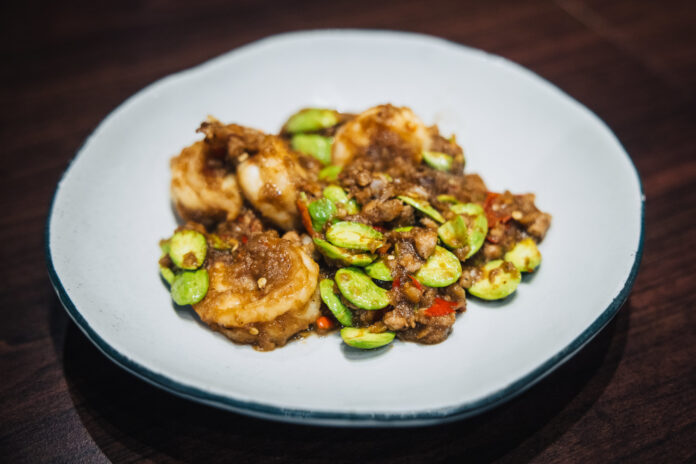Psoriasis is an autoimmune disease causing crusty and flaky patches of skin and silver scales to appear most commonly on your scalp, elbows, lower back and knees. It can also appear on your torso, palms and face.
Affecting approximately 2% of the UK population, these patches can be sore and itchy, particularly during flare-ups. The impact of psoriasis isn’t just skin deep; many people who suffer from this condition also experience low self-esteem as a result of it.
One in three people who have psoriasis can also develop psoriatic arthritis, symptoms of which include pain, tenderness or swollen joints and connective tissue.
Your GP may prescribe creams and lotions that can be applied to the skin to reduce the inflammation response (the redness, pain and heat). Unfortunately, these steroid-based type creams don’t address the auto-immune response, they only treat the inflammation, not the cause of the overproduction of skin cells.
As a nutritional therapist, it is common to find psoriasis in clients who are also presenting signs of gut flora dysbiosis and high histamine reactions. Gut flora dysbiosis is when the integrity of the cells in the gut lining are persistently disrupted by chronic inflammation – similar to psoriasis but inside your gut.

What Triggers A Psoriasis Flare-Up?
Many things can cause psoriasis to flare up, such as stress or skin injury, which can be caused by sunburns, scratches, bug bites, or even vaccinations.
Conventional Psoriasis Treatments
According to the NHS, treatment for this condition is usually in the form of a topical cream. If this isn’t effective, ultraviolet light therapy would be the next line of treatment. However, the consequence of this is an increased risk of skin cancer.
Because of this, doctors advise people to limit their lifetime usage of psoralen and ultraviolet A (PUVA) phototherapy to 150 sessions. Following this, some of most-recommended treatment options include tablets, infusions, injections or a drip.
Alternative Psoriasis Treatments
However, some may choose alternative, complementary ways of combating the physical aspects of psoriasis. Though a scientific consensus on the effectiveness of such an approach hasn’t yet been reached, some of the following methods do show promise.
Stomach Acid – Gut pH balance
An essential part of your gut flora is your stomach acid, and this may be the best place to start when looking to improve gut and, subsequently, skin health.
If your stomach acid levels are either too high or too low, this will reduce the ability to absorb any nutrients. Try taking 1 tablespoon of apple cider vinegar in 250ml water 30 minutes before your meals to potentially help balance your stomach pH levels.

Cleanse Your Liver
We all know the liver is affected by alcohol, but did you know medication (paracetamol and NSAID), sugar and stress also affect the liver’s ability to clean out toxins presented to the body.
These toxins cause inflammation within the cells and need to be removed. It sounds simple, but so many people don’t drink sufficient amounts of water to support liver function. Though there have been reports in the last week debunking the old ‘8 cups a day’ directive, it’s still sensible to stay hydrated to help the body function properly.
Make New Gut Bacteria
We hear so much about probiotics. However, have you considered pre-biotics? These are the foods that cause the gut to produce good bacteria. Rather than drinking probiotic milky drinks, which affect your blood sugars, try including more prebiotic foods, such as mushrooms, garlic, onions, leeks and cabbages, in your diet.
Read: 5 ways to better support your immune system this year
Collagen For Psoriasis
Some psoriasis sufferers may also turn to collagen as a complementary medicine, believing collagen’s ability to reduce inflammation could help decrease the severity of psoriasis, as Healthline reports. Some ways collagen may help treat psoriasis include:
Reduce Inflammation: Collagen houses essential fatty acids that work to reduce inflammation. This is particularly useful because inflammation from the condition can also affect your organs and body tissues. It contains amino acid proteins, which can help to reduce inflammation caused by psoriasis.
Protect Your Scalp: Collagen may also be a great way to maintain healthy, thick hair. That’s because collagen delivers nutrients through the follicles at the root of your hair. Collagen is rich in amino acids that your body needs to build keratin, the protein that makes up hair. Therefore, if your psoriasis flare-ups are generally located in your scalp, collagen might help.
Repair Gut Lining: If your associated health professional has suggested that your flare-ups are food-related, collagen may help deliver the necessary nutrients to potentially heal your gut lining and reduce the impact of psoriasis.
Read: How to get more collagen in your diet and why you should
*This article is not intended to replace medical advice, diagnosis or treatment given by a qualified health professional. Instead, this article only provides information, not advice. For any medical enquiries, always consult your GP, dermatologist, or specialist health professional first*




